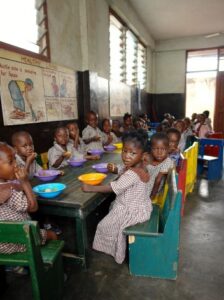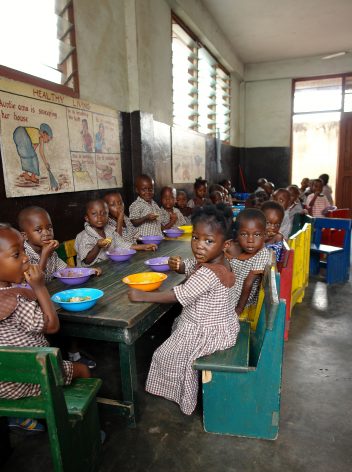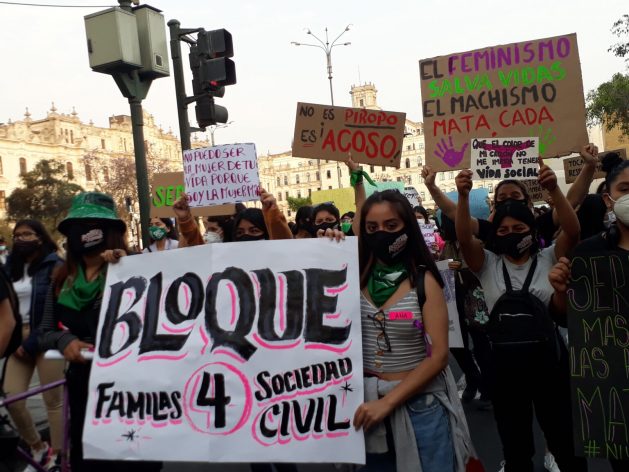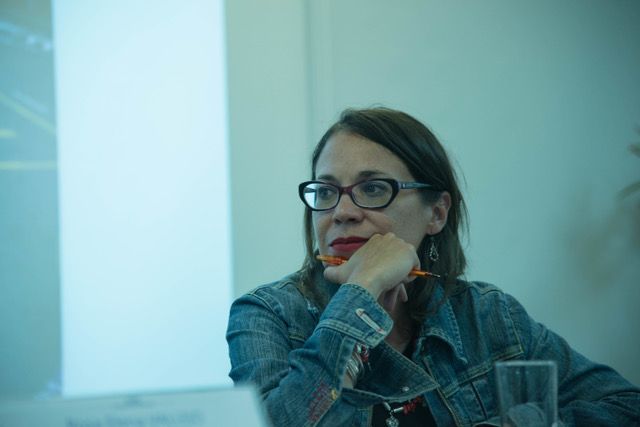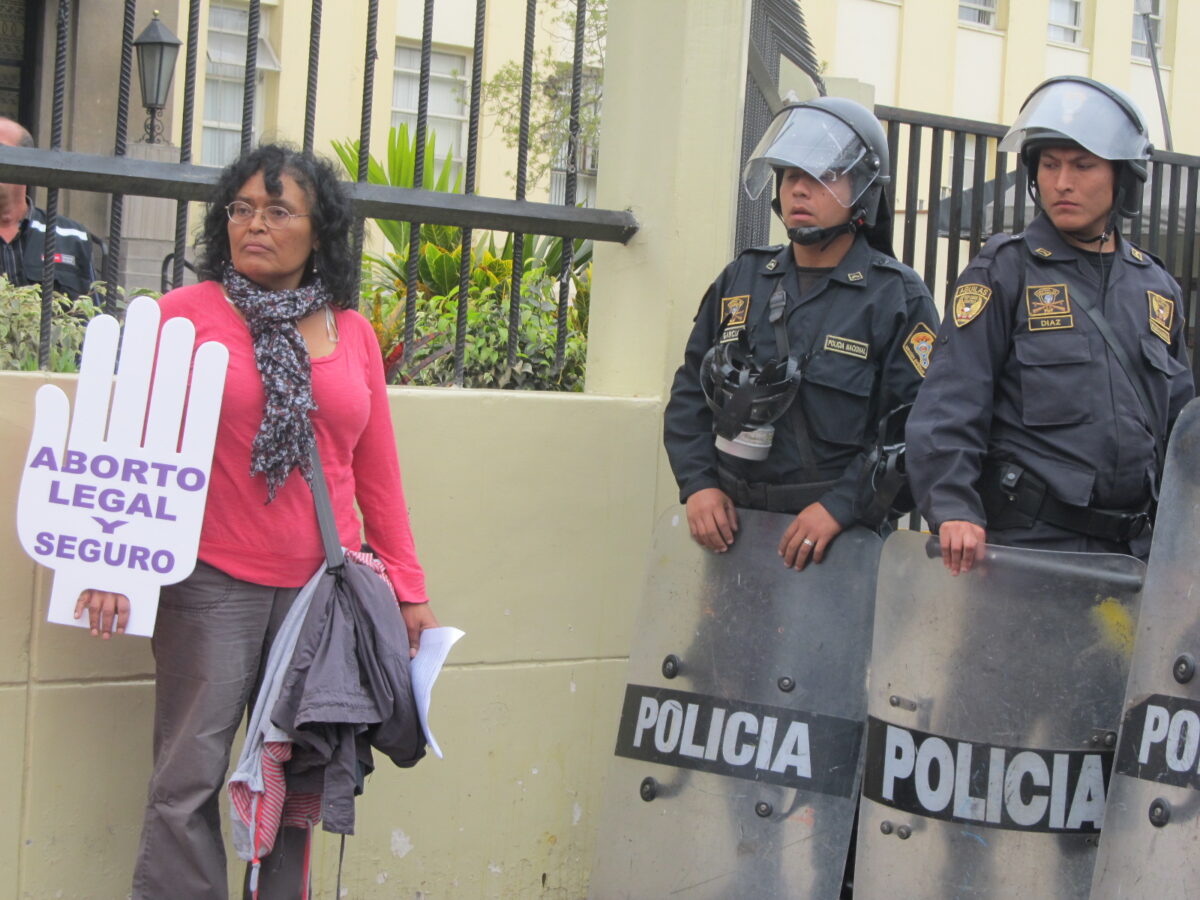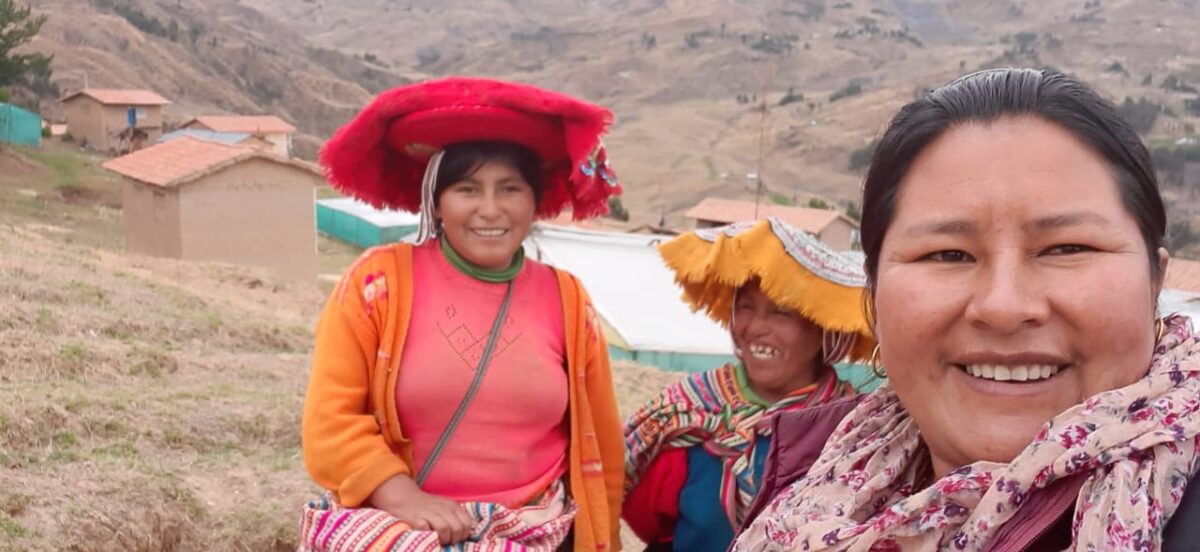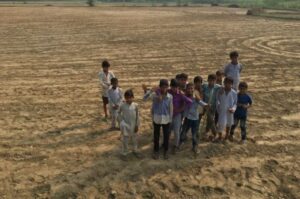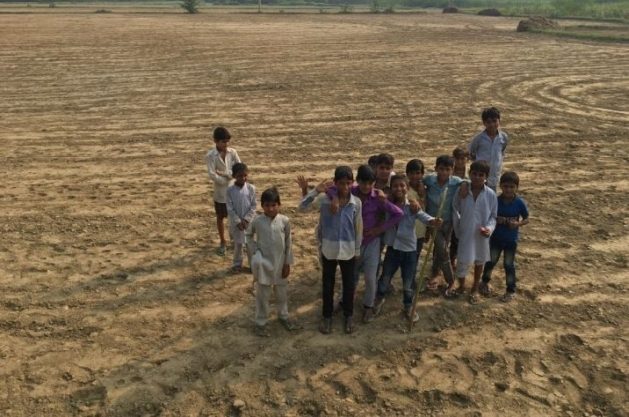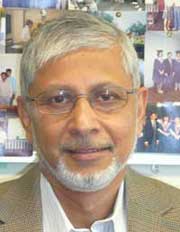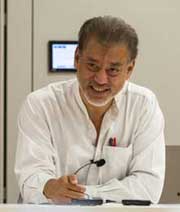

Upcoming Online Events:
Mon, 11/29, 3 pm — P&P Live! Sarah Chayes: ON CORRUPTION IN AMERICA with Timothy Noah — Join P&P Live! to celebrate the paperback release of Sarah Chayes’s new book, On Corruption in America, with Timothy Noah — This event is in partnership with The New Republic — Sarah Chayes writes in On Corruption, that the United States is showing signs similar to some of the most corrupt countries in the world. Corruption, she argues, is an operating system of sophisticated networks in which government officials, key private-sector interests, and out-and-out criminals interweave. Their main objective: not to serve the public but to maximize returns for network members — Sarah Chayes has served as special assistant on corruption to Mike Mullen, former chairman of the Joint Chiefs of Staff, as well as having advised David McKiernan and Stanley McChrystal. She has been a reporter for National Public Radio from Paris, covering Europe and the Balkans. Chayes is the author ofThe Punishment of Virtue: Inside Afghanistan After the Taliban and Thieves of State: Why Corruption Threatens Global Security, winner of the 2016 Los Angeles Times Book Prize — Chayes will be in conversation with Timothy Noah, who began his journalism career at The New Republic and since May 2020 has written a weekly column for the magazine’s website. He has worked at numerous outlets including The Wall Street Journal, Slate, and Politico. Noah’s 2011 Slate series on income inequality won the Sidney Hillman Prize and became the 2012 book The Great Divergence: America’s Growing Inequality Crisis and What We Can Do About It:
https://www.eventbrite.com/e/pp-live-sarah-chayes-on-corruption-in-america-with-timothy-noah-tickets-188586526377?aff=erellivmlt
Mon, 11/29, 6 pm — RESCHEDULED! Paul Auster discusses “Burning Boy” with Eric Lorberer — Booker Prize-shortlisted and New York Times bestselling author Paul Auster makes a most welcome return to our Reading Series, this time virtually, to discuss Burning Boy: The Life and Work of Stephen Crane (Henry Holt), his new biography of American literary icon and war reporter. He appears in conversation with Eric Lorberer. “Paul Auster’s all-in obsessive engagement with the 19th century Bad Boy of American literature, Stephen Crane, is brilliant and beautiful. Auster’s mastery of the historical context, his writerly, troubled, imaginative insights into Crane’s character and the analysis of the works, all superb. And the prose is beautiful — lucid and clear, and yet lyrical and personal. I was deeply moved by his portrayal of Crane’s relationships with Conrad and James and other writers of the time and Crane’s common law wife, Cora, and his judgmental, bourgeois older brother William. And his delicacy regarding Crane’s other relations with women. All of it. What a story! This is more than a novel, more than a biography, more than a book of critical analysis. This is a significant work of literature. And the most profound homage of one writer to another that I’ve ever read.” —Russell Banks, author of Cloudsplitter and The Sweet Hereafter.” — Paul Auster is the bestselling author of 4 3 2 1, Sunset Park, Invisible, The Book of Illusions, and the New York Trilogy, among many other works. In 2006 he was awarded the Prince of Asturias Prize for Literature. Among his other honors are the Prix Médicis étranger for Leviathan, the Independent Spirit Award for the screenplay of Smoke, and the Premio Napoli for Sunset Park. In 2012, he was the first recipient of the NYC Literary Honors in the category of fiction. He is a member of the American Academy of Arts and Letters and a Commandeur de l’Ordre des Arts et des Lettres — Eric Lorberer is the Executive Director of Rain Taxi, a nonprofit organization that publishes the nationally acclaimed quarterly Rain Taxi Review of Books and organizes the annual Twin Cities Book Festival:
https://www.eventbrite.com/e/rescheduled-paul-auster-discusses-burning-boy-with-eric-lorberer-tickets-208197172347?aff=ebdssbonlinesearch
Mon, 11/29, 7 pm — Fireside Film Night – Gaza Fights for Freedom — In honour of the International Day of Solidarity with the Palestinian People, join us for an encore screening of this powerful documentary! — Free online screening: Gaza Fights for Freedom (2019, 1hr 24min) by Abby Martin REGISTER FOR GAZA FIGHTS FOR FREEDOM (The Zoom link to join the live event will be sent to you after registration.) “This collaboration shows you Gaza’s protest movement like you’ve never seen before. Filmed during the height of the Great March Of Return protests, it features exclusive footage of demonstrations where 200 unarmed civilians have been killed by Israeli snipers since March 30, 2018.” — 6:30pm – chat lobby opens — 7:00pm – Welcome; land acknowledgment followed by film screening and discussion — Fireside Film Night is a new free online series featuring important independent films, documentaries and lively discussions. On the fourth Friday of every month, we get together virtually for participatory, fun and thought-provoking evenings. Join us!:
https://www.eventbrite.com/e/fireside-film-night-gaza-fights-for-freedom-tickets-215933722577?aff=ebdsoporgprofile
Tue, 11/30, 8 am — Is Neoliberalism Finished? — Join Haymarket Books and Spectre Journal for a discussion of Neoliberalism and the future of the global economy — After the failures of Keynesianism in the 1970s, the capitalist classes of the world turned to neoliberalism to discipline workers and restore profitability. In the wake of the Great Recession of 2008-10, capitalism has been mired in a long-term global slump and neoliberal policies have been unable to trigger a new boom. Is neoliberalism finished? Are states returning to Keynesianism? Will that work? Why is the world economy locked in a slump? — Join this webinar to hear answers to these and other questions from Prabhat Patnaik, Michael Roberts, and David McNally — Speakers: David McNally teaches history at the University of Houston. He is an editor of Spectre journal, and the author of seven books, including Blood and Money: War, Slavery, Finance and Empire (Haymarket Books 2020) — Michael Roberts is a British-based Marxist economist and author who worked as a professional economist in financial institutions for 40 years. He is author of several books: The Great Recession – a Marxist View (2009); The Long Depression (Haymarket 2016); World in Crisis joint ed (Haymarket 2018) and Marx 200 (2018) — Prabhat Patnaik is a well-known radical economist. He has written extensively on macroeconomics, development economics, and political economy. His books include Accumulation and Stability Under Capitalism and The Retreat to Unfreedom:
https://www.eventbrite.com/e/is-neoliberalism-finished-tickets-214105163307?aff=ebdsoporgprofile
Tue, 11/30, 4 pm — Virtual Talk: “On Corruption in America” with Sarah Chayes — A major work that looks homeward to America, exploring the insidious, dangerous networks of corruption of our past, present, and future — Author Sarah Chayes thinks the United States resembles some of the most corrupt countries in the world. She says that corruption is an operating system of sophisticated networks in which government officials, key private-sector interests, and out-and-out criminals interweave. Their main objective: not to serve the public but to maximize returns for network members — Corruption isn’t new. It’s thrived within our borders for a very long time: from the titans of America’s Gilded Age (Andrew Carnegie, John D. Rockefeller, and J.P. Morgan) to the collapse of the stock market in 1929. There’s proof everywhere: The Great Depression; FDR’s New Deal; Joe Kennedy’s years of banking, bootlegging, machine politics, and pursuit of infinite wealth; and the deregulation of the Reagan Revolution. More recently, she points to Clinton’s policies of political favors and personal enrichment and Trump’s hydra-headed network of corruption which aimed to systematically undo the Constitution and our laws — In this unflinching exploration of corruption in America, Chayes reveals how corrupt systems are organized, how they enable bad actors to bend the rules so their crimes are covered legally, how they overtly determine the shape of our government, and how they affect all levels of society, especially when the corruption is overlooked and downplayed by the rich and well-educated. She also reveals what is at stake if we don’t stop it:
https://www.eventbrite.com/e/virtual-talk-on-corruption-in-america-with-sarah-chayes-registration-169353217031?aff=erellivmlt
Tue, 11/30, 7 pm — Seth Klein – A Good War: Mobilizing Canada for the Climate Emergency — The Mir Centre for Peace presents… Seth Klein – A Good War: Mobilizing Canada for the Climate Emergency — Is what we are seeing and hearing from COP26 and in the federal government’s latest climate plans aligned with the emergency we face? Author and longtime climate activist Seth Klein has something to say about that — Drawing on lessons from our wartime experience, Klein offers an original and uniquely hopeful vision of a way through the climate crisis. Reminding us that we have come together before in common cause across class, race and gender, he shows us that it is possible to entirely retool our economy in the space of a few short years, and align our politics and economy with what the science says we must do to address the climate crisis. We can do this! Join us to learn how — Seth Klein is the Team Lead and Director of Strategy of the Climate Emergency Unit (a 5-year project of the David Suzuki Institute that Seth launched in early 2021). Prior to that, he served for 22 years (1996-2018) as the founding British Columbia Director of the Canadian Centre for Policy Alternatives, a public policy research institute committed to social, economic and environmental justice. He is the author of A Good War: Mobilizing Canada for the Climate Emergency (published in 2020) and writes a regular column for the National Observer:
https://www.eventbrite.com/e/seth-klein-a-good-war-mobilizing-canada-for-the-climate-emergency-tickets-203233776697?aff=ebdssbonlinesearch&keep_tld=1
Wed, 12/1, 12:30 am — Scholars United for a Sustainable Amsterdam (SUSA) Conference — Please join us on 1 December for the SUSA conference: Radically interdisciplinary and bottom-up solutions for making Amsterdam donut-proof — About the conference: During 2021, Scholars United for a Sustainable Amsterdam (SUSA) brought together Amsterdam’s academics to help Amsterdam realise its ambition to align with the model of donut economics. Amsterdam’s citizens shared stories about obstacles standing in the way of more sustainable ways of living or doing business. During this conference, four interdisciplinary teams of academics will share their ideas and work with the audience to overcome key barriers to a sustainable city. The conference is in English — Conference Schedule (Amsterdam time — subtract 9 hours for Pacific time): 9:30 – 9.45 — Coffee & Registration 9:45 – 09:50 — Welcome by the organisers 09:50 – 10:00 –Introduction by André Nollkaemper, dean of the Amsterdam Law School 10:00 – 11.00 –Keynote address by Kate Raworth, author of Doughnut Economics 11.00 –11.15 –Coffee 11:15 – 11:45 –Roundtable 1: A Bottom-up City. Trust and collaboration in Amsterdam’s neighbourhoods 11.45 – 12.15 –Roundtable 2: Rethinking Garbage. A proposal for improving information and awareness about waste 12.15 – 13.15 –Lunch 13.15 – 13.45 –Roundtable 3: Measurability. An exploration of the potential of measurability for big system change 13.45 –14.15 –Roundtable 4: Flipping the Donut. Living in harmony with urban nature 14.15 –14:30 –Closing remarks by Philipp Pattberg, professor environmental policy analysis, VU 14.30 – 15.00 –Speed networking & discussion:
https://www.eventbrite.com/e/scholars-united-for-a-sustainable-amsterdam-susa-conference-tickets-202970940547?aff=ebdssbonlinesearch&keep_tld=1
Wed, 12/1, 11 am — Reading Gramsci: Against War — The December 2021 Reading Gramsci meeting centres on a letter that Gramsci wrote in 1918, exploring the language and discourse of war — The December 2021 Reading Gramsci meeting centres on a letter that Gramsci wrote in 1918, exploring the language and discourse of war. Gramsci invites reflections on the temporary nature of words and the perseverance of meaning that they leave behind as language evolves over time. The Reading Gramsci Events focus on a different reading each month so anyone can join — Find a FREE copy of the letter via this link: https://drive.google.com/file/d/1JOEq4oT6gpApRgCXS-iznishRGkLomnu/view?usp=sharing The Eventbrite page is here:
https://www.eventbrite.co.uk/e/reading-gramsci-against-war-tickets-217849683267?aff=ebdsoporgprofile
Wed, 12/1, 12 Noon — JFSL (Journal of Free Speech Law) Public Panels — UCLA’s Institute for Technology, Law & Policy and the University of Arizona’s TechLaw Program are pleased to host a set of virtual public panels — December 1, 2021 – 11:00 AM (PST) (Hosted by UCLA ITLP) – Panel with Jack Balkin, Mark Lemley, Daphne Keller, and Eugene Volokh; December 6, 2021 – 12:00 PM (PST) (Hosted by UCLA ITLP and UA TechLaw) – Panel with Nadine Strossen, Eugene Volokh, Ash Bhagwat, and Jane Bambauer:
https://www.eventbrite.com/e/jfsl-public-panels-tickets-195546834847?aff=erelpanelorg
Wed, 12/1, 3 pm — Fight Club: The Great Debt Debate (Post-Game Q&A) — Economists Michael Hudson, Pavlina Tcherneva and Steve Keen enter the ring to answer your questions about money and debt! — Nika Dubrovsky, widow of the late David Graeber, has established “The Fight Club” to keep David’s unique way of challenging conventional wisdoms alive. Each “Fight” will pit leading advocates, thinkers and visionaries against each other — The inaugural fight was a debate between the renowned economists Thomas Piketty, author of “Capital in the Twenty-First Century”, and Michael Hudson, author of “And Forgive Them Their Debts”. You can watch it here: https://www.youtube.com/watch?v=GWT0uvBLDbo — Join us for a follow up Q & A session with Hudson, Pavlina Tcherneva and Steve Keen. They will discuss: what is money and what is debt? What are the most serious problems of today’s finance-capital economies? And what are the best remedies? Come with your questions! — Event sponsored by the Hannah Arendt Center for Politics and Humanities, the Economic Democracy Initiative, and the Museum of Care:
https://www.eventbrite.com/e/fight-club-the-great-debt-debate-post-game-qa-tickets-211392088427?aff=ebdssbonlinesearch
Wed, 12/1, 4 pm — Virtual Screening: The War on Cuba — Join the virtual screening of The War on Cuba, followed by virtual conversation with the CMLK Center and journalist Liz Oliva in Havana — The documentary series shows the impact of U.S. sanctions and U.S. interventionism that the grassroots of the US, and all listeners, need to know about and denounce. The Blockade whose express intent is to cause hardship and incite violence- and whose impacts hit hardest along race, class, and gender- has been illegally imposed, with rejection from most of the world, for six decades. Then, the Trump administration tightened it, adding 243 more sanctions. These compounded the challenge caused by the COVID-19 pandemic, and the sudden evaporation of tourism dollars in the Caribbean. The economic hardship has resulted in scarcity in all areas from food, transportation, electricity, and vital medicines. People spend hours in long lines and live with uncertainty and growing inequality despite expansive public programmes, paid time off for COVID, salary raises, and subsidized foods through the libreta neighbourhood system. Daily life has been very hard for most Cubans — The second season of The War on Cuba uncovers the truth behind the mysterious health incidents known as the “Havana Syndrome,” examines the driving forces behind Cuba’s unprecedented July 11 protests and reveals the political interests that pushed Biden to flip-flop on Cuba policy — This will be an opportunity for grassroots organizations, students and community members to learn more about the effects of U.S sanctions on Cuban people. We will also hear about solidarity and what we can do to promote human-centered US economic and political policies towards Cuba — Organized by the Witness For Peace Solidarity Collective:
https://www.eventbrite.com/e/virtual-screening-the-war-on-cuba-tickets-214317849457?aff=ebdssbonlinesearch
Thu, 12/2, 11 am — The Great American Novel Series: Go Tell It on the Mountain (James Baldwin) — What makes Go Tell It on the Mountain a great American novel? — James Baldwin’s semi-autobiographical novel follows the story of Jim Grimes in 1930’s Harlem as he navigates fraught relationships with his family and the church. What makes Go Tell It on the Mountain a great American novel? How does the novel engage with or mirror biblical imagery, and what role does biblical allusion play in the work? Who influenced Baldwin’s writings, and who did his writings influence? — Join the National Association of Scholars on December 2nd to find out! — This event will feature Douglas Field, Senior Lecturer in 20th Century American Literature at The University of Manchester; Doug Sikkema, Assistant Professor of Core Studies and English at Redeemer University; and Ralph Wood, University Professor of Theology and Literature at Baylor University:
https://www.eventbrite.com/e/the-great-american-novel-series-go-tell-it-on-the-mountain-james-baldwin-tickets-158150108231?aff=ebdsoporgprofile
Thu, 12/2, 3:30 pm — James Lawson Institute: Civil Resistance & Nonviolent Movements — Immigration – 1950s to Now – What Has Changed, What Remains? — Please join us for the James Lawson Institute for the Research and Study of Nonviolent Movements at Vanderbilt University for our inaugural fall series. In this series, we will explore Movements in Nonviolence through research, conversations, and practices to prepare the next generation to engage in nonviolent approaches to social change — Immigration – 1950s to Now – What Has Changed, What Remains? — Join for a screening of the documentary “My name is Maria De Jesus” and a discussion on immigration rights and the struggle for just policies:
https://www.eventbrite.com/e/james-lawson-institute-civil-resistance-nonviolent-movements-tickets-208063472447?aff=ebdsoporgprofile
Fri, 12/3, 3 am through 12/10 — Join David Graeber Tribute LSE Anthropology Friday Seminar Series — In Honour of David Graeber: Exploring the Fissures and Cracks — An LSE Anthropology Seminar series that strives to come to terms with our dear colleague and friend’s extraordinary intellectual generosity and optimism. In each session, two anthropologists will lead a critical discussion on one of David Graeber’s key gifts of writing, exploring the fissures and cracks, as David liked to, in order to grow our thoughts and actions. Chaired by Alpa Shah — 3 December 2021 Bureaucracy; Nayanika Mathur (Oxford Assoc Professor Anthropology) and Michael Herzfeld (Harvard Monrad Research Professor of the Social Sciences): 10 December 2021 Bullshit Jobs; Mao Mollona (Goldsmiths Senior Lecturer Anthropology) and Andrew Sanchez (Cambridge Associate Professor Anthropology):
https://www.eventbrite.com/e/join-david-graeber-tribute-lse-anthropology-friday-seminar-series-tickets-164329216109?aff=ebdssbonlinesearch&keep_tld=1
Fri, 12/3, 11 am — ODDconvo: Creating Utopia — What worlds get to exist beyond our imagination? — Utopia literally means ‘nowhere.’ For some people, that may seem bleak. For us here at GariTalks, Nowhere is the space of infinite possibility — Creating Utopia, part of the ODDconvo (Oh Das Deep conversations) series, is a space to collectively channel the power of Imagination to generate new ideas about what this world around us could look like — “Imagination is the only weapon in the war against reality.” – Lewis Carroll — Once a month, on the 1st Friday, we gather and actively ask ourselves the questions: “What worlds get to exist beyond what we currently see and don’t see? What worlds are we longing to build?” — Come talk about the unexpected. Come share in the power of dreaming — GariTalks: Creating spaces for transformative healing experiences through intentional reflection, connective dialogue, and mindfull storytelling:
https://www.eventbrite.com/e/oddconvo-creating-utopia-tickets-165484062285?aff=ebdssbonlinesearch
Fri, 12/3, 3 pm — “The Ants & The Grasshopper” Screening & Community Talk — Please join the University of California, Merced for a community discussion regarding the film, “The Ants & The Grasshopper” on Friday, 12/3 at 3 pm PST — About the Film: “Traveling from Malawi to California to the White House, Anita Chitaya sets out on a journey to persuade Americans that climate change is real.” — Directed by Zak Piper and Raj Patel — A link to screen the film will be emailed to those registered on 12/2. The film will be available to watch for the 48 hours before the community discussion on 12/3 at 3 pm PST — The event is free and open to the public:
https://www.eventbrite.com/e/the-ants-the-grasshopper-screening-community-talk-tickets-215369705587?aff=ebdssbonlinesearch
Sun, 12/5, 11 am — WHAT’S LOVE GOT TO DO WITH IT?: A Conversation With Richard Gilman-Opal — Exploring seldom asked and deeply radical concepts at the cutting edge of creating a more humane world — In The Communism of Love, Richard Gilman-Opalsky makes the case that what is called “love” by the best thinkers, is in fact, the beating heart of communism—understood as a form of life, not as a form of government — Why is capitalist exchange value the enemy of love? Does the human aspiration to love embody a longing for communist relationality? In the ruins of the 20th Century’s revolutions, what is communism anyway? And in a world dominated by violence and hate can we find ways to create and build love? Why do these questions matter relative to human development and social justice? — Join Gilman-Opalsky and Dan Friedman for this open conversation—your questions and comments welcome—exploring seldom asked and deeply radical concepts at the cutting edge of creating a more humane world — PRESENTERS: Dan Friedman is a member of the faculty of the East Side Institute and Artistic Director Emeritus of the Castillo Theatre, which he helped to found in 1983. He is managing producer of the Institute’s podcast, “All Power to the Developing,” and co-chair, with Lois Holzman, of Performing the World Happening(s). He is a playwright and theatre director with a doctorate in theatre history from the University of Wisconsin. His latest book, Performance Activism: Precursors and Contemporary Pioneers, is the first book-length study of performance activism, to be published by Palgrave later this year — Richard Gilman-Opalsky is Professor of political theory and philosophy in the School of Politics and International Affairs at the University of Illinois at Springfield. He is the author of six books, including The Communism of Love, Specters of Revolt, Precarious Communism and Spectacular Capitalism. He is also co-editor of the book Against Capital in the Twenty-First Century and co-author of Riotous Epistemology. He has lectured widely throughout North America and Europe, including at Goldsmiths University of London, Loughboro University, University of Essex, at University of La Plata Argentina, and as visiting professor at Shaanxi Normal University in China:
https://www.eventbrite.com/e/whats-love-got-to-do-with-it-a-conversation-with-richard-gilman-opal-registration-201900097627?aff=ebdssbonlinesearch
Mon, 12/6, 10 am — A Conversation between James Kelman and Noam Chomsky — Join us on Monday, December 6th for a conversation between James Kelman and Noam Chomsky — This event is the virtual book launch event for Between Thought and Expression Lies a Lifetime: Why Ideas Matter — Between Thought and Expression Lies a Lifetime: Why Ideas Matter is an impassioned, elucidating, and often humorous collaboration. Philosophical and intimate, it is a call to ponder, imagine, explore, and act — James Kelman is a Scottish novelist, short story writer, playwright, and essayist whose many literary awards include the Booker and James Tait Black prizes. He started writing at the age of twenty-two: ramblings, musings, sundry phantasmagoria, stories, whatever. In 1969 while working in London he met and married Marie Connors from South Wales. They settled in Glasgow, where he has lived as writer, father, and grandfather. Kelman has been a vocal supporter of the Kurdish people and campaigns regularly with Scottish Solidarity with Kurdistan — Noam Chomsky is a laureate professor at the University of Arizona and professor emeritus in the MIT Department of Linguistics and Philosophy. His work is widely credited with having revolutionized the field of modern linguistics and Chomsky is one of the foremost critics of U.S. foreign policy. He has published numerous groundbreaking books, articles, and essays on global politics, history, and linguistics. His recent books include Who Rules the World? and Hopes and Prospects:
https://www.eventbrite.com/e/a-conversation-between-james-kelman-and-noam-chomsky-tickets-193148320827?aff=erellivmlt
Mon, 12/6, 2 pm — Ask Me Anything Featuring Leslie Davenport — Please join the University of California, Merced on Monday, 12/6 at 2 PM PST for an AMA (Ask Me Anything) with Leslie Davenport! — Biography: Leslie Davenport (she/her/hers) works as a climate psychology educator and consultant, integrating social science insights into relevant resources for organizations exploring the intersectionality of climate, economics, policy, and social justice. She helped shape the document, “Mental Health and Our Changing Climate: Impacts, Implications, and Guidance.” She is the author of four books including Emotional Resiliency in the Era of Climate Change and All the Feelings Under the Sun. She is an advisor for the non-profits Project InsideOut, Integrative Healers Action Network, and One Resilient Earth, and is on faculty with the California Institute of Integral Studies, Master’s program in Professional Psychology and Health. http://www.lesliedavenport.com — This virtual event is free and open to the public — Can’t attend, but have a question for Leslie? Email emeyer4 [at] ucmerced.edu the question:
https://www.eventbrite.com/e/ask-me-anything-featuring-leslie-davenport-tickets-204207830117?aff=erelpanelorg
Mon, 12/6, 7 pm — Introduction to Drawdown Climate Solutions — This webinar will introduce the basic concepts of Drawdown, a solution-based approach to climate action — Climate Change can be reversed! Peer reviewed international research shows that it is possible to actually “drawdown” our greenhouse gases. These solutions to our climate crisis exist right now – we just need to implement them on an individual, community, national, and global level — Organized by Drawdown BC:
https://www.eventbrite.com/e/introduction-to-drawdown-climate-solutions-tickets-172937489687?aff=ebdssbonlinesearch
Tue, 12/7, 10 am — Regenerative Futures — *Please note this is a Zoom webinar and places are limited. If you wish to join the event please register for a ticket* — The 2021 Bicentenary Medal Address Regenerative Futures: redesigning the human impact on earth — Dr Daniel Christian Wahl is awarded the 2021 RSA Bicentenary Medal in recognition of his outstanding contribution to regenerative design — In his Medal address, Dr Wahl will offer reflections on 20 years of research and professional practice exploring the role of design as a catalyst for the transition towards a future of diverse regenerative cultures everywhere — Speaker: Daniel Christian Wahl, educator and author of Designing Regenerative Cultures:
https://www.eventbrite.co.uk/e/regenerative-futures-tickets-213574786937?aff=ebdsoporgprofile
Wed, 12/8. 11 am — GM ‘Designer Babies’: Breakthrough or Nightmare? — Three years after the world’s first genetically modified babies were created, what are the implications for society? — Dec 8th: Organised by Stop Designer Babies — In 2018, the Chinese scientists created the world’s first genetically modified (GM) babies. Despite the worldwide outrage, next March the science establishment are meeting in London to push the ‘genome editing’ agenda forward — Some scientists claim that genetic modification is needed to prevent genetic diseases, but is that really true? In a world still riven with disability, race and class oppression and other examples of eugenics, will allowing people to engineer their babies’ genes make social inequalities even worse? Will it turn children into just another designed and optimised commodity? — Join us at our free online event to discuss these issues and what we can do about them — Sigrid Graumann, feminist bioethicist and member of the German Ethics Council will make the case against GM babies — Angus Clarke, clinical geneticist from Cardiff University will explain why genetic modification is unnecessary — PLUS contributions from members of Stop Designer Babies (SDB) — For more information, or to be kept informed about SDB events, contact info at: stopdesignerbabies.org We are planning another event in February on the links between climate, GM food and GM babies:
https://www.eventbrite.com/e/gm-designer-babies-breakthrough-or-nightmare-tickets-210931560977?aff=ebdssbonlinesearch&keep_tld=1
Wed, 12/8. 5 pm — A Top Thinker Discusses our Personal, National and Global Crises — Jared Mason Diamond is an American geographer, historian, ornithologist, and author best known for his popular science books The Third Chimpanzee (1991); Guns, Germs, and Steel (1997, awarded a Pulitzer Prize); Collapse (2005), The World Until Yesterday (2012), and Upheaval (2019). Originally trained in biochemistry and physiology, Diamond is known for drawing from a variety of fields, including anthropology, ecology, geography, and evolutionary biology. He is a professor of geography at UCLA. Diamond has been ranked ninth on a poll by Prospect and Foreign Policy of the world’s top 100 public intellectuals:
https://www.eventbrite.com/e/a-top-thinker-discusses-our-personal-national-and-global-crises-tickets-205806020347?aff=ebdssbonlinesearch
Thu, 12/9, 9 am — BLACK LIBERATION & WORKER COOPERATIVES: Innovative Organizing — The COVID crisis further exposed the social, political and environmental inequities embedded in our society. However, the pandemic created opportunities for communities to organize and practice cooperative solutions to enhance capacity for fundamental system change. Join us to learn about the innovative work of Cooperation Jackson — Featuring: Kali Akuno Co-Founder & Co-Director – Cooperation Jackson — Rebecca Lurie Director, Community Worker Ownership Project, Faculty – CUNY School of Labor & Urban Studies:
https://www.eventbrite.com/e/black-liberation-worker-cooperatives-innovative-organizing-tickets-215795579387?aff=ebdsoporgprofile
Thu, 12/9, 9 am — Algorithmic Desire and the Ideology of Twenty-First Century Capitalism — Much has been written about the more deleterious dimensions of social media websites, platforms, and apps, from Facebook, Twitter, and YouTube, to Instagram and Snapchat, dating apps like Tinder, and more recent apps like TikTok. We are all more than familiar with critiques of social media corporate and government surveillance, the commodification, expropriation and exploitation of user-provided data, the tailoring and curation of content, and of course recent dilemmas focused on fake news tying our use of social media to international cyberwarfare. Given all of these potential problems, why don’t we just give up and abandon our attachment to social media? How might we grapple with the exploitative and anti-democratic aspects of social media set against the kinds of enjoyment that it procures? — Despite some of these problems, Matthew Flisfeder argues that social media helps us to grasp the co-ordinates, not merely of our trouble with machines and new media, but with the larger totality of twenty-first century capitalism. Conceiving social media as a central metaphor for our historical present, Flisfeder proposes extending the concept to its fullest potentials. Instead of abandoning the concept, Flisfeder argues that the term social media helps us to render what is problematic about contemporary neoliberal capitalism, proposing that it is only by pursuing and failing to achieve a truly authentic social media as our goal that we are best positioned to understand the real contradictions of our time, as well as dominant forms of subjectivity, consciousness, and enjoyment — Biography: Matthew Flisfeder is an Associate Professor of Rhetoric and Communications at The University of Winnipeg (Canada). He is the author of Algorithmic Desire: Toward a New Structuralist Theory of Social Media (Northwestern UP 2021), Postmodern Theory and Blade Runner (Bloomsbury 2017), The Symbolic, The Sublime, and Slavoj Žižek’s Theory of Film (Palgrave Macmillan 2012), and co-editor of Žižek and Media Studies: A Reader (Palgrave Macmillan 2014):
https://www.eventbrite.com/e/algorithmic-desire-and-the-ideology-of-twenty-first-century-capitalism-tickets-170528374960?aff=erellivmlt&keep_tld=1
Thu, 12/9, 10:30 am — Brazil’s 2022 election: Lula’s return Vs Bolsonaro’s anti-democratic agenda — Brazil elections 2022: Take a stand with the resistance against Bolsonaro’s anti-democratic crackdown – for Lula & Brazilian Democracy! — Brazil’s 2022 election: Lula’s return Vs Bolsonaro’s anti-democratic clampdown — With elections under a year away, Bolsonaro has been ramping up threats against democracy and the electoral system. The far-right President has openly said that he will claim fraud if he loses, and that “only god” can remove him from power — We must show the far-right in Brazil that the world is watching, and support the huge movements of resistance against Bolsonaro. If elections were held today, former President Lula da Silva would win in the first round — Show your international solidarity and support with: Richard Burgon MP – Brazil Solidarity Initiative Chair; Nathalia Urban – Journalist, Brasil Wire; Alex Main – Policy Analyst, Centre for Economic and Policy Research (US) — This election is crucial for the social, indigenous, environmental, quilombo, trade union, LGBT+, women’s, black and other groups fighting back against Bolsonaro’s reactionary and hate-filled agenda — Please show your solidarity and support. This event is hosted by the Brazil Solidarity Initiative:
https://www.eventbrite.co.uk/e/brazils-2022-election-lulas-return-vs-bolsonaros-anti-democratic-agenda-tickets-195876551037?aff=erellivmlt
Thu, 12/9, 11 am — Dialogue III: Deep Ecology, Mindfulness & Climate Emergency — Can inner shifts in perspectives help us respond more skilfully to the climate and environmental crisis? — In this third Science & Wisdom LIVE dialogue, Dr. Vandana Shiva, Dr. Stephan Harding, and Dr. David Loy will discuss the urgent topic of the climate emergency and environmental crisis — As scientists and activists warn us about the potential dangers ahead, new paradigms are emerging to help us navigate the challenges of our times. Deep Ecology invites us to experience (and act from) a deep feeling of our interconnectedness with the natural world. Similarly, contemplative practices (such as mindfulness and meditation) can deepen our sense of oneness with the living universe around us — We will hear from scientists and contemplative practitioners about what it takes to be an activist and induce change, while still keeping a positive mind — Dr. Vandana Shiva earned a PhD. In Nuclear Physics at the University of Western Ontario and later studied science policy in Bangalore, where she explored interdisciplinary research in Science, Technology and Environmental policy — She emerged as an authority in the field of environmental impact and founded the Research Foundation for Science, Technology and Ecology, dedicated to opposing the use of patented, genetically-engineered seeds. In 1991, Dr Shiva founded Navdanya, a national movement to protect the diversity and integrity of living resources, especially native seeds, and to oppose what she calls the colonization of life itself under intellectual property and patent laws — Dr Shiva sees Biodiversity as intimately linked to Cultural Diversity and Knowledge Diversity, and recently launched a global movement called Diverse Women for Diversity. Among Vandana Shiva’s many honours is the Right Livelihood Award – also known as the Alternative Nobel Prize. She is the author of more than 300 papers in leading scientific and technical journals, and many books — Dr. David R. Loy is a Professor of Buddhist and Comparative Philosophy, a writer, and a teacher in the Sanbo Zen tradition of Japanese Buddhism. His books include Money Sex War Karma, A New Buddhist Path, and most recently Ecodharma: Buddhist Teachings for the Ecological Crisis. He is one of the founders of the new Rocky Mountain Ecodharma Retreat Center, near Boulder, Colorado — Dr. Stephan Harding’s doctorate at the University of Oxford was on the behavioural ecology of the muntjac deer — After teaching conservation biology at the National University of Costa Rica, he became a founder member of Schumacher College, and later was appointed as a founding chair holder of the Arne Naess Chair in Global Justice and the Environment at the University of Oslo — Stephan is the author of Animate Earth: Science, Intuition and Gaia, and his latest book, Gaia Alchemy, will be published in January 2022:
https://www.eventbrite.com/e/dialogue-iii-deep-ecology-mindfulness-climate-emergency-tickets-184881534647?aff=ebdssbonlinesearch&keep_tld=1
Thu, 12/9, 5 pm — Zen and the Art of Saving the Planet – Book Club/Study — The Midwest Earth Holder Community will be facilitating a book club to study the new book by Thich Nhat Hanh, Zen and the Art of Saving the Planet. The book club will start on Thursday, December 9 and meet every other Thursday with the last meeting on Thursday, March 3 (seven meetings). All meetings will be on Zoom — Each meeting will be facilitated by a Midwest Earth Holder Community Group member. Meetings will have a short meditation, a Dharma sharing/talk by the facilitator about the book section being studied, a Dharma sharing/discussion in small groups, and a closing with Sharing the Merit — For information about the book, please go to: https://www.harpercollins.com/pages/zenandthepla The Eventbrite page is here:
https://www.eventbrite.com/e/zen-and-the-art-of-saving-the-planet-book-clubstudy-tickets-210683689587?aff=ebdssbonlinesearch
Mon, 12/13, 10 am — Reading Group: for generations that are yet to be born — Join artist and Bluecoat Project Curator Katherine Ka Yi Liu 廖加怡 for a restorative online reading group — This group is a safe platform for collective reading and sharing. It holds space for care and encourages the practice of reading together as a form of survival, resistance and healing under our current post-lockdown but still in pandemic condition — In the first few sessions, the group will be focusing on exploring different chapters from All About Love: New Visions (Love Song to the Nation) (2000) by African-American scholar and activist bell hooks. Each chapter deconstructs and reframes our assumptions about “love” as a primarily romantic emotion and how love became a “cliché”, instead it reconnects us to love that is redemptive, and healing; an understanding of love that in Covid times we need more than ever — Join us regularly each month or drop in for one session. No need to complete the reading beforehand, there will be time to read each chapter at the beginning of the group and time for discussion after. Free, booking required — Schedule: Monday 13 December 21 – all about love, chapter 11, Loss: Loving into life and death Monday 10 January 22 – all about love, chapter 12, Healing: Redemptive Love Monday 14 February 22- all about love, chapter 8, Community: Loving Communion Monday 14 March 22 – all about love, chapter 4, Commitment: Let Love be Be Love in Me:
https://www.eventbrite.com/e/reading-group-for-generations-that-are-yet-to-be-born-mon-13-dec-tickets-216853503667?aff=ebdssbonlinesearch&keep_tld=1

